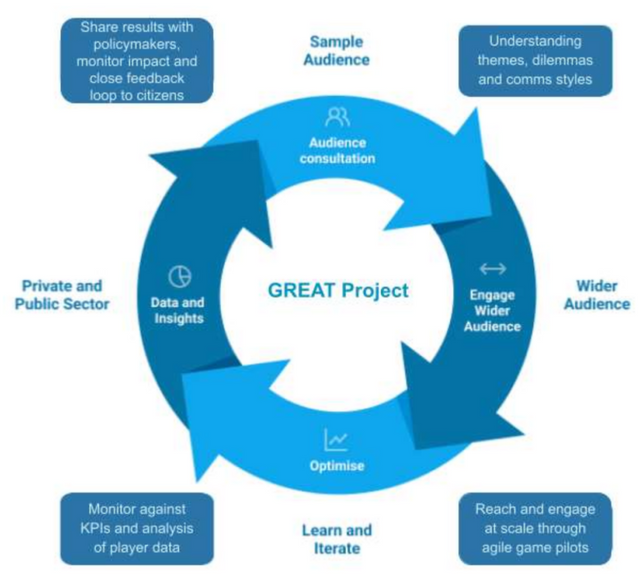Project kick-off: Games Realising Effective and Affective Transformation (GREAT)
Using computer games to improve climate protection
A new European Union-funded project involving scientific and private-sector partner organizations is investigating how computer games can be used to improve climate protection. The aim is to raise awareness among citizens of the relevant challenges and to provide policymakers with information on how to align climate protection even more closely with the needs of society. The international project consortium is coordinated by the DIPF | Leibniz Institute for Research and Information in Education.

“Digital games are becoming increasingly popular. We want to combine this potential with citizen science methods and use it for a central policy field,” explains Dr. Jane Yau, a member of the project management team at DIPF together with Dana Kube and Nina Seidenberg. On the one hand, the games are intended to encourage citizens to become more involved with issues and problems related to climate protection. On the other hand, modern analysis tools are to prepare structured information on the state of knowledge, ideas and concerns of the players on these issues. These overviews can then be used to further develop climate protection policy.
The experts will test two different approaches to games:
- With relatively simple quiz games on smartphones and tablets, particularly high numbers of users and thus data volumes can be generated. The games should revolve around topics such as transportation, energy, food, nature and population protection, or the development of a “green economy”.
- With more complex games, groups of players are confronted with a problem that is to be tackled through collaboration. In this way, deeper insights into the opinions and needs of citizens can be gained. Both approaches will be strictly oriented towards data protection.
For the project, the DIPF has brought together an international consortium. “We combine expertise in data analysis, game development and policy briefing,” says Prof. Dr. Hendrik Drachsler, head of the consortium at DIPF. In addition to the Leibniz Institute, the project “Games Realising Effective & Affective Transformation (in Societal and cultural domains) – GREAT” includes the following institutions: Centre for Social Innovation (ZSI), Austria, Frederick University, Cyprus, International University of La Rioja, Spain, and University of Bolton, UK, as well as the game producers Serious Games Interactive (SGI), Denmark, and Playmob, UK.
The European Union, in collaboration with UK Research and Innovation (UKRI), is funding the project with around three million euros. The result is expected to be open-source method building kits for creating such games, a freely accessible analysis module, and several open-access scientific publications.
Contact at DIPF:
Project Management: Dr. Jane Yau, +49 (0)69 24708-454, j.yau@dipf.de, and Prof. Dr. Hendrik Drachsler, +49 (0)69 24708-870, h.drachsler@dipf.de
Press: Philip Stirm, +49 (0)69 24708-123, p.stirm@dipf.de, pr@dipf.de